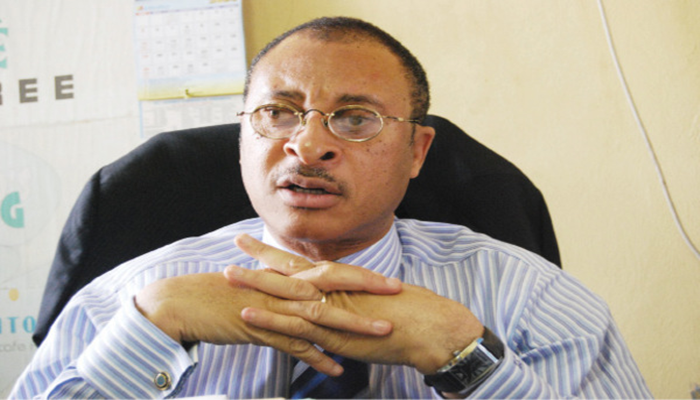
Stakeholders in the private sector on Tuesday identified regulatory risk as the biggest challenge of businesses in Nigeria and called for national strategy in policy formation.
They said this at the Regulatory Conversations 4.0 with the theme `Foreign Exchange Restrictions on Food Imports and Implications for Regulating and Growing the Nigerian Economy” in Lagos.
Speaking at the event, Prof. Pat Utomi of the Centre for Value in Leadership, said that many companies had collapsed in Nigeria due to regulatory risk and lack of national strategy.
“We should have a clear national strategy that we want to become global leaders in these one, two, three areas.
“We can do isolated industrial policy to those areas of which our endowments allow us to become competitive globally and dominate that value chain,” Utomi said.
He noted that negative legitimacy would not take the country anywhere rather it would destroy businesses and lead to increase in unemployment rate.
“The biggest risk in doing business in Nigeria is regulatory risk.
“The regulator is more likely to kill a company than any market risk,” he said.
Utomi said that systematically certain sector of the economy had been wiped out by an unthinking regulator’s actions
He said that government needed to think through the consequences of its policies before implementation, noting that restrictions would not take the country anywhere.
Utomi explained that players in the industry should educate each other on the consequences because the economy belonged to everyone.
“Part of our duty as players in this, is to say to ourselves, look this economy belongs to all of us; can we begin to educate ourselves on the consequences,” he said.
Mr Muda Yusuf, the Director-General of Lagos Chamber of Commerce and Industry (LCCI), said that the regulatory environment was one of the biggest challenges being faced currently in business in the country.
Yusuf said that regulators meant well for the country but the problem was in strategy and how to achieve it.
“Unfortunately, we don’t have regulators who are in government, who actually listens or engages so that you can have the right kind of strategy to achieve the desired result.
“There are too many regulations in the country and the damage it is doing to the economy is enormous.
“To do business with integrity in Nigeria today is a tall order,” Yusuf said.
He said that many businesses had gone under because of challenges of regulatory compliance.
According to him, many businesses have transited to become informal sector players.
The LCCI boss said that smugglers had taken over businesses in Nigeria, adding that the country was losing because smugglers don’t pay taxes.
He explained that the emphasis should be on building domestic capacity for the development of the country.
Ms Suzzy Onwuka of the Consumer Protection Council, said that foreign exchange restrictions on food imports by government was to help local producers.
Onwuka said that most government policies was to move the country forward and make the country a better place for everybody.
She said the country did have issues in the implementation of policies.
Onwuka said that though there might be pains in policy implementation in the short term, players in the industry should take it as a challenge to achieve the desired result.
Also, Mr Oluwasegun Osundipe of the Manufacturers Association of Nigeria (MAN), lamented government’s failure in consulting with important stakeholders before implementation of policies.
Osundipe called on the government to keep policies on hold to give room for proper consultation and strategies.
Mr Soji Apampa, Chief Executive Officer, Integrity Organisation/Convention on Business Integrity, said that 70,000 children die annually due to serious malnutrition.
Apampa said that government should think through policy choices to avoid negative effects.
The News Agency of Nigeria (NAN) reports that the event was organised by Integrity Organisation in partnership with Proshare, BusinessDay, Actionaid, UKAid and the Nigerian Economic Summit Group. (NAN)






